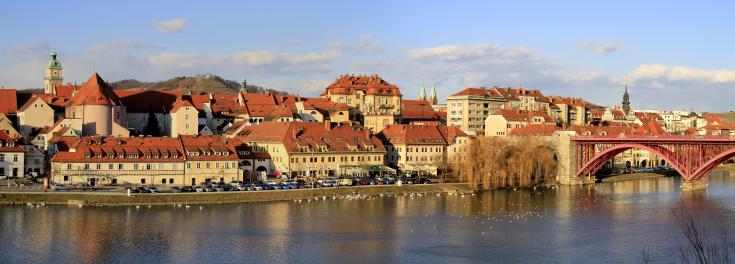Fostering circular economy citizen engagement in Maribor
On 12-13 January 2022, the Policy Learning Platform held an online peer review for the City of Maribor (Slovenia), whaich requested advice regarding its policy challenge on circular economy citizen engagement.
A detailed list of challenges and recommendations can be found in the follow-up report.
Current state of affairs
Maribor is the second-largest city in the Republic of Slovenia and the municipality is involved in many European and national sustainability projects. The city has many activities focusing on low carbon economy, smart city, smart transportation, circularity, and environmental protection.
Participatory methods and the involvement of citizens already play an important role in the preparation of strategic documents.
The municipality developed a ‘Strategy for the Transition to the Circular Economy in the Municipality of Maribor’ which aims to manage all the city’s resources in a circular manner. In light of this strategy, Maribor decided to tackle several policy challenges to boost the circular economy through citizen engagement via peer review.
Long-term citizen involvement: The city set out to explore available tools to effectively involve citizens in circular economy activities, how to motivate citizens to engage in proactive cooperation and how to keep the momentum and build critical mass over time.
One holistic strategy for citizen participation: Maribor was interested to know how could the municipality and its related public bodies (development agency, energy agency, public waste company, etc.) effectively adopt and roll out these tools and how could various on-going activities for citizen participation be integrated into one holistic circular economy participatory approach.
Peers from across Europe
Alongside Katharina Krell, Magda Michaliková and Astrid Severin, our low carbon economy and environment and resource efficiency Thematic Experts, six excellent peers were invited, and participated in the peer review:
- Paolo Ferraresi, RREUSE, Belgium
- Daniela Sani, ART-ER, Italy
- Vassilis Zissimopoulos, Costa Nostrum, Crete, Greece
- Susanna Vanhamäki, LAB University of Applied Sciences, Finland
- Carla Fransen, Municipality of Apeldoorn, The Netherlands
- Tiphaine Bresser, Zero Waste Apeldoorn, The Netherlands
The experts came together to share their experience and to provide recommendations for ways of tackling Maribor’s challenges related to the circular economy citizen engagement. They provided the host with valuable insight, know-how and practical suggestions for solving the challenges presented above.
Recommendations
The peers presented the benefits of citizen participation in circular economy activities and highlighted the potential for job creation. The recommended adoption of various tools, including policies for citizen participation, service design processes based on interviews and workshops with residents, various services such as peer-to-peer lending platform (sharing economy), services for monitoring of energy use (low carbon economy) or development local and sustainable food supply chains.
The peers also recommended communication on waste prevention, zero waste cafés, map of packaging-free shops, clean-up campaigns, support of local reuse and repair initiatives, advanced separate collection or education campaigns in schools.
The peers advocated for the adoption of environmental and social public procurement criteria that prioritise reuse and recommended thorough data collection, monitoring, and identification of gaps. Communication was highlighted as extremely important for citizen involvement and continuous motivation as well as for the integration of activities.
The host’s policy challenges and all the peer suggestions will soon be found in the follow-up report.
Pleased with the outcome of two full days of intense discussions moderated by the Policy Learning Platform, Klemen Risto Bizjak, Senior advisor at the City of Maribor, commented:
“We touched upon all the important topics and the presented proposals were of great quality and relevance. This was a very intense process that resulted in a roadmap for the City of Maribor on which we can build further. I hope we will be able to implement these recommendations and would like to thank all the peers who participated today. I believe their input will be beneficial for our city, but also for other cities who will read the results of this peer review.”
From the side of the peers involved in the peer review, Susanna Vanhamäki from LAB University of Applied Sciences in Finland, added:
“I really enjoyed this process, it is an excellent opportunity to learn from peers all over Europe. It was very interesting to explore Maribor’s challenges and dive deep into the discussion and brainstorming of possible solutions. I see a knowledge-sharing opportunity like this as a great way to get inspired and do something completely different from my everyday work.”
The host used the peer review to involve local stakeholders in a very lively discussion and is now assessing the recommendations received from the peers to see how they could inform the decision-making process to better engage citizens in circular economy activities.

